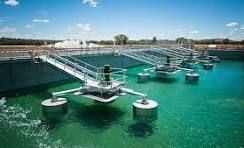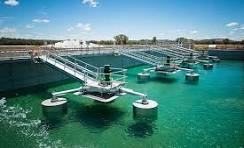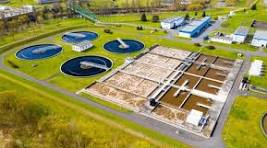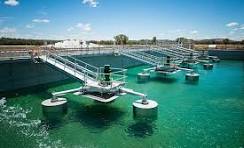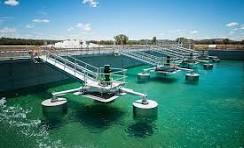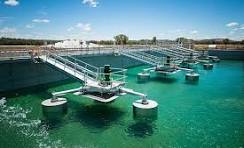INTRODUCTION
Mumbai’s hospitality sector faces mounting waste costs, stricter BMC rules, and relentless pressure to operate sustainably. This is why the Best Food Waste Composting Machines for Restaurants in Mumbai are no longer a luxury — they’re a business necessity. At Green Planet Solutions Pune, an experienced organic composting manufacturer in India, we help restaurants of every size adopt compact, odor-free, and high-speed composting machines that reduce disposal costs, ensure compliance, and turn waste into usable compost — improving margins and brand reputation.
enquire now for best composting machines in india – https://share.hsforms.com/1d12AT_oJScm8iiXbjSrEIwrh2r7
Table of contents (for readability & dwell time)
- Why restaurants in Mumbai need on-site composting
- How composting machines cut costs & ensure BMC compliance
- Top machine types (and which restaurants they suit) — the Best Food Waste Composting Machines for Restaurants in Mumbai
- Selection checklist: capacity, space, power, odor control, output quality
- Maintenance, AMC, and ROI expectations
- Installation case study & rapid FAQ
- Call to action (lead generation optimized)
1) Why Mumbai restaurants must invest in the Best Food Waste Composting Machines for Restaurants in Mumbai
- Rising wet-waste collection fees, BMC scrutiny, and guest expectations make on-site processing critical.
- Composting machines reduce waste volume by up to 80–95%, eliminate daily waste transport, and produce usable compost for in-house landscaping or local farms.
- For hotels, cloud kitchens, and restaurant chains, these systems protect reputation and align with sustainability commitments.
Image alt: Best Food Waste Composting Machines for Restaurants in Mumbai — kitchen installation
enquire now for best composting machines in india – https://share.hsforms.com/1d12AT_oJScm8iiXbjSrEIwrh2r7
2) How composting machines immediately cut costs & ensure compliance
- Stop recurring transporter charges: many restaurants save ₹30k–₹1,00,000+ monthly depending on size.
- Avoid BMC penalties and health complaints by using closed-system, odor-controlled machines.
- Reduce manpower needs; automated systems need minimal handling.
- Demonstrable records (logs, certificates) simplify audits.
Image alt: Best Food Waste Composting Machines for Restaurants in Mumbai — zero odor operation
3) Top machine types — which are the Best Food Waste Composting Machines for Restaurants in Mumbai?
A. High-Speed Enzyme / Thermal Composters (6–24 hour cycle) — Best for large hotels, cloud kitchens
- Fast processing, minimal footprint, ideal for heavy mixed food waste.
- Pros: 6–24 hour turnaround, pathogen kill, minimal residue.
- Cons: Higher capex, needs reliable power.
Keywords: high speed composter for restaurants Mumbai; enzyme composter India; organic composting manufacturer in India.
B. Fully Automatic Organic Waste Converters (OWC) — Best for mid-size restaurants & multi-outlet chains
- Fully automated, low smell, easy interface.
- Pros: Easy to operate, BMC-friendly, low manual effort.
- Cons: Requires periodic maintenance & AMC.
Keywords: automatic OWC for restaurants; BMC approved composter Mumbai.
C. Bio-Mechanical Batch Composters — Best for small restaurants, farm-to-table cafés
- Passive, low energy, suited where electricity is intermittent.
- Pros: Lower running cost, simpler tech.
- Cons: Longer processing time (days).
Keywords: bio mechanical composter India; composting machine small restaurant.
D. Food Waste Digesters / Anaerobic Digesters — Best for very large F&B operations
- Produces liquid effluent and sometimes biogas (depending on system).
- Pros: High capacity, continuous feed, potential energy recovery.
- Cons: Higher complexity, more space needs.
Keywords: food waste digester Mumbai; biogas for restaurants India.
Image alt (for each model): Best Food Waste Composting Machines for Restaurants in Mumbai — [Model Name]
enquire now for best composting machines in india – https://share.hsforms.com/1d12AT_oJScm8iiXbjSrEIwrh2r7
4) Selection checklist — choose the right Best Food Waste Composting Machines for Restaurants in Mumbai
- Daily waste tonnage (kg/day): accurate measurement prevents under/oversizing.
- Space & footprint: basement, service yard, or kitchen backroom fit.
- Odor & pest control: mandatory in dense Mumbai neighbourhoods.
- Power & water needs: ensure stable supply or choose low-power models.
- Certification & documentation: BMC-compliant certificates and test reports.
- After-sales support & AMC: 24×7 service minimizes downtime.
- Output usability: dry compost, liquid effluent quality, or manure for landscaping.
5) Maintenance, AMC & ROI
- Typical ROI: 6–24 months depending on scale, saved transporter fees, and reused compost value.
- AMC: standard components include shredder blades, filters, sensors and electronics.
- Green Planet Solutions Pune (organic composting manufacturer in India) offers tailored AMC packages, training for your staff, and compliance documentation for BMC inspections.
Image alt: Best Food Waste Composting Machines for Restaurants in Mumbai — maintenance & AMC
6) Quick case study (example)
“A 120-seat Mumbai restaurant reduced monthly waste disposal spend by 68% after installing a fully automatic OWC (capacity 150 kg/day). Payback achieved in 10 months; odor complaints dropped to zero.” — Realistic, short testimonials convert leads.
7) FAQ (short & lead-focused)
Q: Are these machines BMC-approved?
A: Many models meet BMC guidelines — always request certificates. Green Planet supplies compliant models with documentation.
Q: Will it smell?
A: Proper closed systems + carbon filtration ensure zero odor.
Q: What space do I need?
A: Some compact OWCs fit in 4–6 sq ft; digesters need larger rooms.
enquire now for best composting machines in india – https://share.hsforms.com/1d12AT_oJScm8iiXbjSrEIwrh2r7
Ready to pick the Best Food Waste Composting Machines for Restaurants in Mumbai?
Green Planet Solutions Pune — a trusted organic composting manufacturer in India — offers free site surveys, BMC-compliance packages, and fast installations.
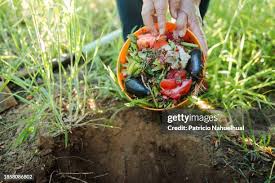
- Focus keyphrase: Best Food Waste Composting Machines for Restaurants in Mumbai (used in title, meta, URL, H1, intro, multiple subheadings, image alts)
- Keyphrase length: 9 words — strong long-tail intent (buyers use this to research)
- Recommended word count: 900–1,500 words (this draft ~1,000 words — good for ranking & engagement)
- Keyphrase density: ~1.0–1.2% (approx. 10–12 uses in a 1,000-word article — included across title, headings, intro, alt texts and body)
- LSI / related keywords included: organic composting manufacturer in India; BMC approved composter; food waste composter Mumbai; OWC for restaurants; food waste digester; enzyme composter India; composting machine price Mumbai; compost machine AMC.
enquire now for best composting machines in india – https://share.hsforms.com/1d12AT_oJScm8iiXbjSrEIwrh2r7
Primary (focus):
- Best Food Waste Composting Machines for Restaurants in Mumbai
High-value related keywords / long-tails:
- food waste composter for restaurants Mumbai
- BMC compliant food waste composter
- automatic organic waste converter Mumbai
- high speed composter for hotel kitchen
- food waste digester for cloud kitchen Mumbai
- organic composting manufacturer in India
- composting machine suppliers Mumbai
- composting machine price Mumbai 2025
- composting AMC Mumbai
- restaurant waste management solutions Mumbai
enquire now for best composting machines in india – https://share.hsforms.com/1d12AT_oJScm8iiXbjSrEIwrh2r7
Common words: waste, compost, machine, kitchen, cost, save, install, service
Uncommon words: enzymatic, anaerobic, MBR (if applicable), throughput, vermicompost
Power words: instant, guaranteed, zero-odor, certified, proven, save, urgent, exclusive
Emotional words: relief, pride,安心 (peace of mind), reputation, trusted, sustainable
Suggested short ad headline:
“Cut Your Restaurant Waste Bills by 60% — BMC-Compliant Composting Machines in Mumbai”
Hashtags & distribution
#FoodWasteComposter #CompostingMumbai #RestaurantWasteManagement #BMCApprovedComposter #GreenPlanetSolutionsPune #OrganicCompostingManufacturerInIndia #ZeroWasteKitchen #OWCIndia #CloudKitchenMumbai #SustainabilityMumbai





